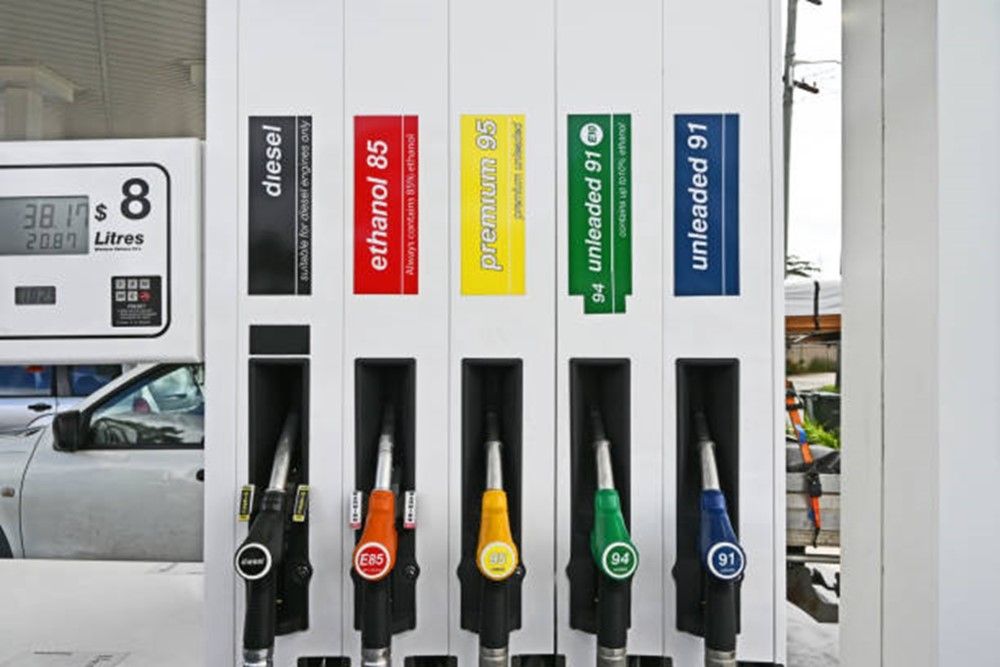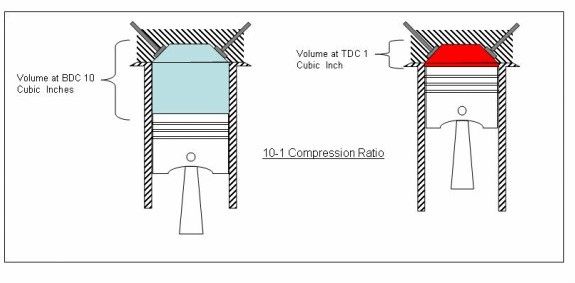
Premium vs Regular Unleaded: Understanding the Difference
Introduction to Octane Ratings and RON
In the automotive fuel landscape, the term RON (Research Octane Number) is essential for distinguishing between standard unleaded petrol and premium unleaded petrol. This acronym, commonly seen at most petrol stations and in automotive content, indicates the fuel's octane rating. In Australia, these ratings vary from standard 91 octane unleaded petrol to premium 98 octane, with intermediate options like 95 premium unleaded petrol and E10 (94 octane).
Understanding Your Car's Engine Knock and Compression Ratios
The octane rating measures a fuel's ability to resist engine knock - premature burning of fuel in the engine, often accompanied by a knocking sound. This resistance is vital, particularly concerning an engine's compression ratio, which is the difference in cylinder volume when the piston is at its highest and lowest points, as illustrated in the diagram above. Higher compression ratios, typical in modern engines, necessitate fuels with higher octane ratings to prevent knock and maintain engine efficiency and power.

The Significance of 98 Octane Premium Unleaded Petrol
98 octane fuel, the highest available in Australia, is categorised as 'premium' unleaded. Its premium status stems not only from its price but also from its superior knock resistance, which enhances the power and efficiency of engines with high compression ratios. On the other hand, fuels like 95 premium unleaded petrol, E10, and standard 91 unleaded have lower octane ratings and are less resistant to knock, potentially leading to diminished power and efficiency in high-octane engines.
Vehicle Requirements and Fuel Choices
Older cars generally accommodate a broad spectrum of fuels, from standard 91 to premium 98 octane. However, newer models from major manufacturers like Audi, Hyundai, Toyota, Volkswagen and others, especially those with high compression or turbocharged engines (like many European cars), prefer 95 or 98 octane premium unleaded petrol. Modern vehicles with electronic fuel injection (EFI) systems can adjust ignition timing to counteract knock, but this may reduce power and fuel economy.
Emergency Use and Manufacturer Guidelines
In emergencies, new cars can use standard petrol temporarily, but optimal performance and longevity are best maintained by following manufacturer recommendations. This is especially crucial for vehicles with petrol particulate filters (PPFs), which may need higher octane fuel to prevent damage. For example, the Skoda Superb Scout, equipped with a PPF, exclusively uses premium unleaded petrol due to sulfur content in lower-quality fuels.
Myths About Premium Fuel and Engine Cleaning
While premium fuels are often marketed for their engine-cleaning capabilities, this is not their primary benefit. Modern vehicles come equipped with fuel filters to remove impurities. Regular servicing and occasional long drives are more effective for maintaining engine cleanliness and preventing carbon build-up.
Final Thoughts
Understanding the differences between premium petrol and regular unleaded fuel, including octane ratings and engine requirements, is crucial for your vehicle's optimal performance and longevity. Whether your car requires premium petrol or regular unleaded fuel, catering to the specific needs of your engine will ensure its efficiency and health in the long run.
If you're feeling that it's time to upgrade your car, start your buying journey with OnlyCars. With more than 10,000 listings from private sellers and dealerships all across Australia, we've got something for everyone. Find your next car today and travel in style with OnlyCars!
Once you've found the right car, the next step is sorting out car finance that actually works for your budget. Credit One is Australia's best-reviewed finance broker, with 3,000+ five-star Google reviews from customers who've been through the process. Check out Credit One reviews to see what people say, or head straight to the loan repayment calculator to see what the numbers look like.